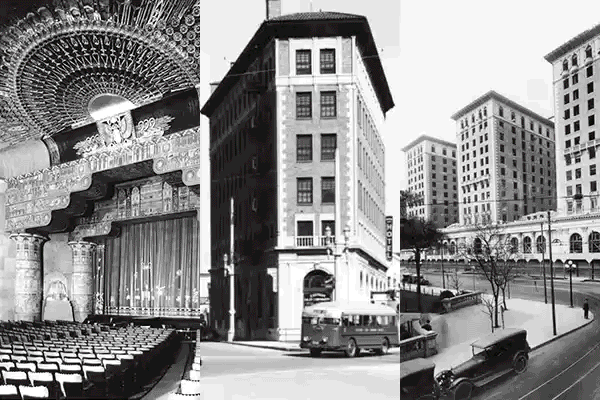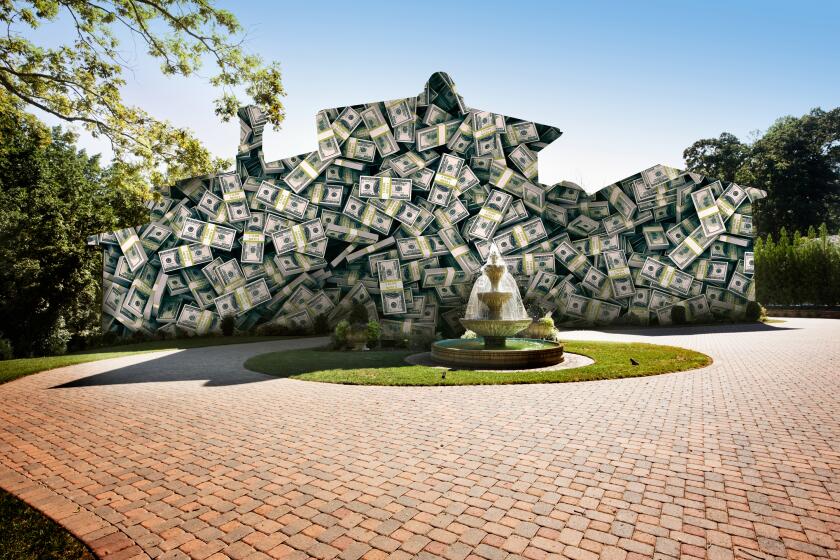What’s in a comparison? Agents dish on finding comps in L.A.’s real estate market

Has the traditional real estate comp become outdated in Los Angeles? New construction, historic residences, location and design pedigree have made finding comparable properties a tall task in some of L.A.’s most coveted neighborhoods. Local agents share their experiences and challenges when it comes to finding comps in their respective markets.
Jason Insalaco, Coldwell Banker Residential Brokerage
Traditional sales comping remains relevant, but it should no longer be the single factor when determining price. Recent legislation allowing additional dwelling units (ADUs) is a game changer, as savvy investors and agents understand that accurate comps should now include not only neighborhood sales prices but also potential revenue from future ADU development.
Gov. Gavin Newsom recently signed a slew of bills that will allow property owners to build a backyard home of at least 800 square feet or convert a garage, office or spare room into an additional living space. Single-family zoning effectively evaporated on Jan. 1 when the new laws went into effect.
Constructing one to two units on a property could create income of up to $50,000 annually depending on the number of buildable units, neighborhood, residence size and unit amenities. In addition to reviewing traditional sale comparables, I work closely with my clients in analyzing rental comps, vacancy rates, and construction costs to determine whether a property would be a smart buy for future ADU development and cash flow.
Debbie Weiss, Keller Williams Realty
If there is ever an inexact science, it’s finding good comps for a property in Los Angeles. Right now, it’s harder than ever to find comparable properties due to the lack of sales in general, and also the huge variations in inventory sold. Unless you are in a planned community like Irvine or Valencia, finding close comps to a property in West or Mid Los Angeles is like being a detective collecting evidence to present a case.
How far do I expand my search to unearth several homes that have similar enough features, square footage, etc. to be able to justify a price? Sometimes you have to go back a year or sometimes even two to find relevant comparable homes right now.
Finding comps for homes in Culver City, where I work with a lot of buyers, is far less challenging than in some of the other areas. In Culver City, there are new construction homes — which sell at a certain average price per square foot depending on location and square footage — and then there’s everything else.
!["Right now, it’s harder than ever to find comparable properties [in Los Angeles] due to the lack of sales in general, and also the huge variations in inventory sold," says real estate agent Debbie Weiss.](https://ca-times.brightspotcdn.com/dims4/default/126eaa9/2147483647/strip/true/crop/2083x1595+0+0/resize/1200x919!/quality/75/?url=https%3A%2F%2Fcalifornia-times-brightspot.s3.amazonaws.com%2F84%2F65%2Feab9ee2c44a99a4dffffebe8566b%2Fla-fi-hp-finding-comps-2.jpg)
Tear-downs in Culver City often sell at the same price or very close in price to a home that you could move into but perhaps hasn’t been remodeled in decades. All the different neighborhoods within Culver City demand different prices, so you really have to understand those nuances as well and adjust prices accordingly.
In other Westside areas, the homes are harder to comp, as they are often so dramatically different from one another (architecturally, lot size, square footage, and how recently remodeled, and the level of design and finishes, etc.). But at the end of the day, it still comes down to what the market is willing to pay. That’s the best indication of what a home is worth regardless of any comp you can find to justify it. Unfortunately, you can’t tell that to a bank.
Ben Bacal, Revel Real Estate
Los Angeles is a hot market, and we have a ton of incredible homes. However, looking at the photos and viewing a property in person every day changes our perspective. So, if you are an agent without access to a property that never hit the market, you really won’t know why that specific home sold. If an agent doesn’t understand aesthetics and the intrinsic value of a renowned designer or architect, that is also a challenge.
Often you can calculate the price per square foot for a property that sold and use that same calculation for the property you are trying to price. This only works for similar, finished homes with the same-sized lots. When the home is bespoke and the location is integral to the equation, a seller will require a knowledgeable agent to help you with those valuations.
The traditional real estate comp is outdated in the luxury market because there are many aspirational sellers and unicorn sales that can throw off estimating values if you’re not an expert. Sellers still want validation from their brokers, but it is our duty to study the comps, be forthright and set expectations.
Chris Jacobs, Keller Williams Realty
When listing a home, an important conversation I have with clients is about comps. There are many factors that go into pricing a home, including pedigree, location, views, upgrades, etc. If an offer isn’t all cash, then there will be an appraisal from the buyer’s lender, and this can make things complicated without recent comps.
Over the past few years, I’ve been faced with the challenge of my listings breaking records and being the highest sales in a few luxury condo buildings. It’s all about being able to prove the worth of the unit and helping to make my sellers, the buyers and appraisers understand the value. As a listing agent, I create a bound “appraisal package” for every appointment to show clients how we determined the value of the property we are selling (recent Multiple Listing Service and off-market sales, floor plans, features and upgrade lists, etc.).
A penthouse condo unit I sold this year was the highest price per square foot sale in the West Hollywood area since 2016. The offer was all-cash, but the buyer insisted on having an appraisal done. It can be nerve-racking because a low appraisal hurts the deal and a buyer will almost always want a reduction. We came in at value, so it all worked out, but you really have to do your homework when there is a lack of comps.
More to Read
Sign up for Essential California
The most important California stories and recommendations in your inbox every morning.
You may occasionally receive promotional content from the Los Angeles Times.







